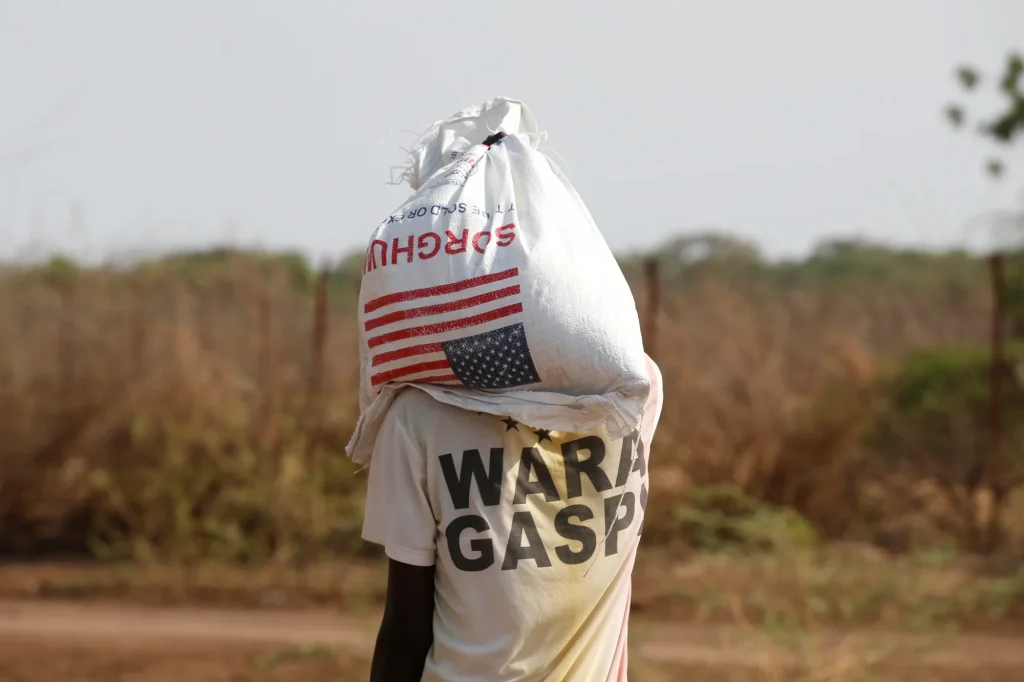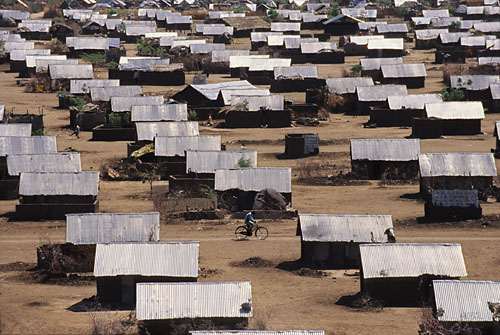Kenyan LGBTQ+ safe houses ‘overwhelmed’ as cuts hit refugee camps
Aid for refugees has been slashed by the U.S. and the U.N.World Food Program

The Thomson Reuters Foundation reported on Context.news:
Nairobi’s queer safe houses are pushed to the brink as LGBTQ+ refugees flee hunger in Kakuma camp hit by aid cuts.
- Food rations at refugee camps were cut after funding was slashed.
- LGBTQ+ refugees have fled Kakuma Camp because of hunger and abuse.
- Nairobi safe houses have been unable to cope with the number of arrivals
NAIROBI – Terry Namalo, a Ugandan trans woman, left Kenya’s Kakuma refugee camp in September after the “hunger became too much” and headed to a safe house in Nairobi, joining scores of other LGBTQ+ refugees forced to move after international aid cuts.
“This year has been tough on refugees in the camp because of the reduced food rations,” the 25-year-old said. “Refugees are going days without food, and those who can afford to buy are forced to do with one meal per day.”
From Kenya to Bangladesh, refugees have seen their food rations reduced because of a collapse in aid funding from the United States and other Western countries.
President Donald Trump slashed his foreign aid budget and shuttered the U.S. Agency for International Development earlier this year.

In June, the United Nations’ World Food Programme (WFP) said it was reducing its food and cash assistance in Kakuma, the Dadaab camp and the Kalobeyei settlement to the lowest levels ever recorded.
Lucretia , coordinator of the LGBTQ rights group Queers of Kakuma, said that between June and October the group had helped 200 vulnerable queer refugees move to safe houses in Nairobi.
“The food crisis in the camp has complicated the situation of already vulnerable queer refugees. They are being targeted (and) attacked, and other refugees are stealing the little food they have,” Lucretia, who asked that she only be identified by one name for privacy reasons, told Context/the Thomson Reuters Foundation in Nairobi.
Now safe houses in the capital are becoming dangerously crowded.
“The number of those making (their) way out of Kakuma is so huge that the available safe houses cannot handle it,” said Craig Paris, the executive director of the Refugee Coalition of East Africa (RefCEA).
“We are not only worried about the shortage of food but also about overstretched water, sanitation and hygiene services,” he said, warning that residents were at risk of diseases such as cholera.
‘Requests are overwhelming’
Since June, two safe houses in Nairobi have received 300 requests for shelter from refugees from Kakuma, home to about 300,00 refugees.
“The requests are overwhelming. Our safe house can only accommodate 40 persons, but now we are housing 96,” said Gregory, who did not want to give his last name and runs resource mobilisation at the Kipepeo shelter.
He said they had adjusted meal and sleeping plans to accommodate the extra people.
“Currently, we are only able to provide dinner to the refugees. We have three people sleeping on one mattress, while others sleep on bare floors.”
Rhoda, who moved to Kipepeo from Kakuma, said accessing menstruation products was challenging.
“At our shelter, the few available menstrual products cannot meet the needs of all the women here. We have some reusable sanitary pads, which we are sharing, and that is unhygienic,” she said.
At a shelter run by MAREPA, a refugee-led, non-profit organisation based in the United States and Kenya, privacy has become a concern, said Berita, the shelter’s founder who did not give her last name.
The safe house can host 30 people but now has 100. While it originally served lesbians, it has opened its doors to other queer refugees from Kakuma.
“Our shelter was a safe space for women, and we feel the current situation has compromised their privacy a great deal,” Berita said.




